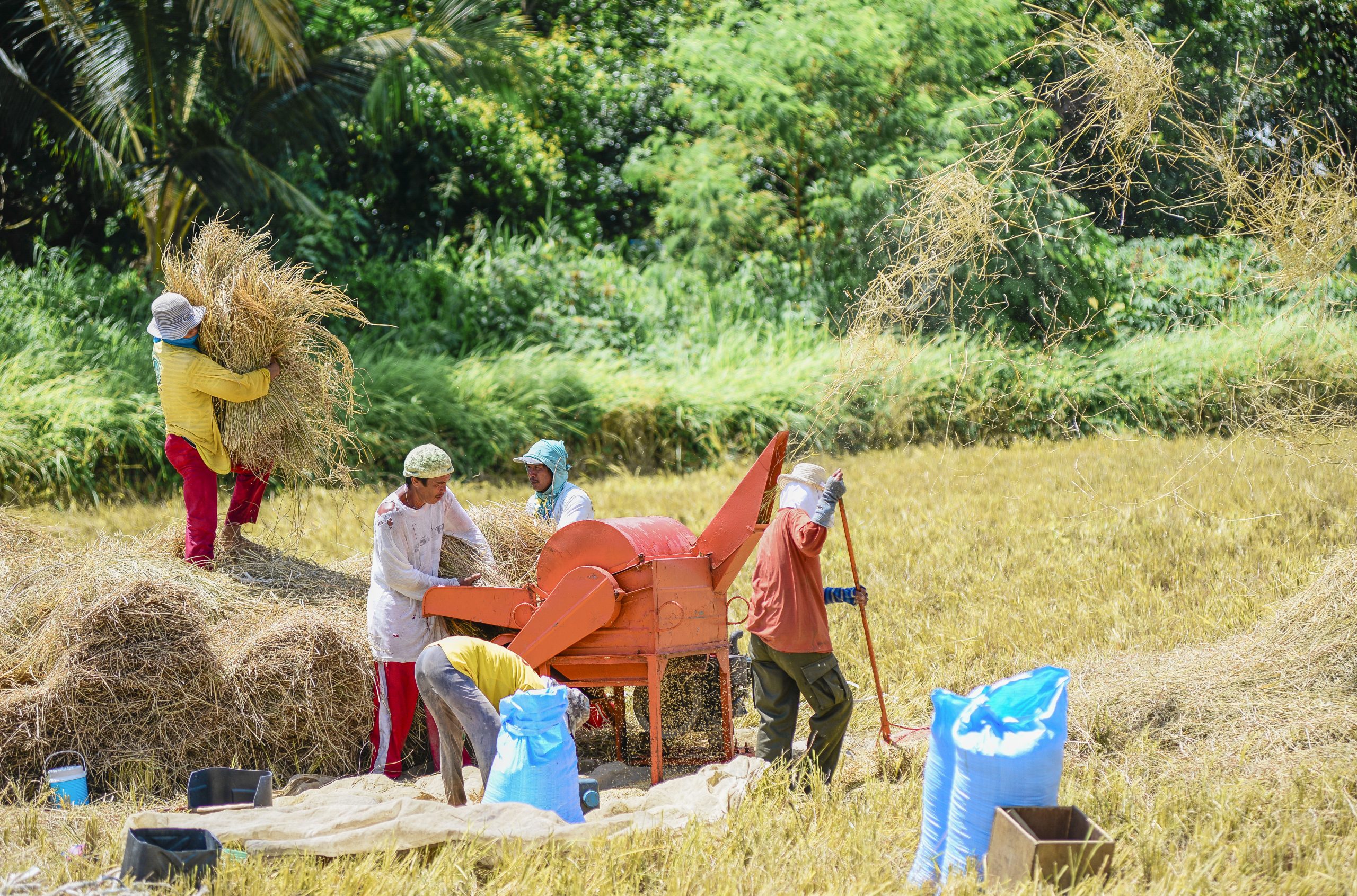
The Department of Agriculture (DA) plans to use the excess 2019 rice tariff collections for crop diversification and expanded crop insurance programs.
“We have been encouraging rice farmers, particularly those tilling rainfed and marginal lands, to plant other crops that would generate bigger income, and more importantly instill in them the need to insure their crops,” said Agriculture Secretary William Dar.
“It is auspicious that we can pursue both initiatives using the excess tariff collections from imported rice, as provided under the Rice Tariffication Law (RTL) or RA 11203,” added the DA chief.
The Bureau of Customs (BOC) recently reported that tariffs collected from imported rice in 2019 totaled P12.1 billion (B).
As per RTL, of the total tariff collected annually, P10B is automatically appropriated for the provision of farm machinery and equipment (P5B), certified inbred seeds (P3), credit (P1B), and training and extension (P1B), while the excess will fund other initiatives to make Filipino rice farmers more productive and competitive.
These include crop diversification, crop insurance, agricultural land titling, and other programs as deemed appropriate by the DA.
The Department of Budget and Management (DBM) earlier in the year has released P10B to the DA to fund the four RCEF program components, which are already in full swing, secretary Dar said.
“On April 13, 2020, we requested DBM Secretary Wendel Avisado to release the excess rice tariff collections to fund our crop diversification program and expanded crop insurance program on rice,” said Secretary Dar.
With the recent BOC report, farmers’ groups are clamoring for the immediate release of the excess rice tariff collections amounting to P2.1B.
Of the amount, the DA is requesting the DBM to allot P1B for the crop diversification program and P1.1B for the expanded crop insurance on rice, which will be implemented by the DA’s high-value crops development program, and DA-Philippine Crop Insurance Corporation (PCIC), respectively.
RCEF Components Update
Now on its second year, the RCEF program is vigorously implemented, despite momentary setbacks due to COVID-19 community quarantine protocols nationwide.
“We were able to devise strategies to ensure that we continue to roll out the RCEF program components. So far, we are doing very well through the help of our partner agencies and local government units,” Secretary Dar said.
“Our initial efforts are paying off, as the country’s production of palay (rice paddy) reached 4.12 million metric tons (MMT) in the second quarter of 2020, up by 6.85 percent from the same period last year, according to the Philippine Statistics Authority,” the DA chief noted.
To date, the DA-Philippine Rice Research Institute (PhilRice) reported a total of 2,341,433 bags of high-quality seeds were delivered to 710,178 farmer-beneficiaries, in 983 municipalities and cities, in 55 provinces.
The agency also delivered 21,643 bags of seeds to 3,046 farmer-beneficiaries, tilling 1,772 hectares, in Lanao del Sur and Maguindanao, in Bangsamoro Autonomous Region in Muslim Mindanao (BARMM).
Using the P5-B 2019 RCEF farm mechanization budget, the DA-PhilMech has awarded 2,938 units of farm machinery and equipment worth P2B to 625 farmers’ cooperatives and associations (FCAs) nationwide.
The second batch of 4,996 units worth P3B is under bidding process and expected to be completed by July 31, 2020, said DA-PhilMech Director Baldwin Jallorina. Thereafter, the farm machines and equipment will be given to the second batch of 1,068 FCAs.
For the 2020 P5-B RCEF farm mechanization budget, the DA-Philippine Center for Postharvest Development and Mechanization (PhilMech) has to date validated 2,587 FCA applicants, of which 1,259 FCAs have been shortlisted and qualified to receive 4,543 units of farm machinery.
For his part, DA-Field Operations Service Director Roy Abaya said they expect to obligate the total released budget of P10 billion for mechanization before the year ends, to procure and distribute the targeted 15,000 units of various farm machines and equipment.
On credit, the Development Bank of the Philippines (DBP) and Land Bank of the Philippines (LBP) have already lent out their respective P500-million RCEF credit fund to 5,214 individuals and FCAs. Both banks are currently disbursing the 2020 RCEF credit fund to qualified beneficiaries.
Finally, on training and extension, both the DA-Agricultural Training Institute (ATI) and TESDA have granted a total of 16,245 scholarship slots to farmer field schools, rice machinery operation, drying, and milling plant servicing, and small engine servicing — from the 2019 fund and 3,733 slots for 2020.
The DA-ATI also established 50 farm schools cum agri-tourism sites across the country.
Together with TESDA, the DA through ATI, PhilMech, and PhilRice has trained five batches of rice specialists; 86 batches of trainers; 579 batches of farmers; and 24 batches of seed growers, inspectors, analysts, and other extension intermediaries — with a total of 18,350 participants.
They also disseminated more than 2.8 million copies of information and communication materials on rice production and other crops, and agricultural and livelihood projects, benefiting thousands of farmers and their families nationwide. ### (Myriam Layaoen, DA StratComms)













